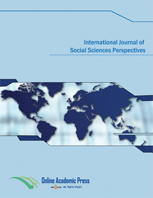Employee engagement and work centrality in times of crisis
DOI:
https://doi.org/10.33094/ijssp.v14i1.1448Keywords:
COVID-19, Employee engagement, Hybrid work, Work centrality, Working from home.Abstract
During the COVID-19 crisis, in 2020, many employees were forced to switch to working full-time from home or in a hybrid mode (combining work from home and on premises). The purpose of the present study examined the degree of engagement and work centrality of employees according to their employment mode. The questionnaire was conducted to those who continued to work on premises (n=100), those who switched to a hybrid mode (n=100), and those who switched to working from home (n=100) during the crisis. The findings of the study showed that the participation or non-participation of employees in the decision to change the working mode during the crisis, did not affect their engagement work centrality. Work centrality was highest for employees who continued to work on premises and lowest for those who switched to working from home. No difference was found in the degree of employee’s engagement in the different employment modes. Single-parent workers with children under the age of 13 who switched to hybrid work or working from home showed a higher engagement than did other workers. Demographic variables, employee participation, and the change in work mode had little effect on work centrality and engagement. One of the practical implications is that employing workers in crisis situations, when other organizations lay off employees and unemployment rates soar, increase appreciation of the organization, and contribute to strengthening the psychological contract of mutual obligations.




